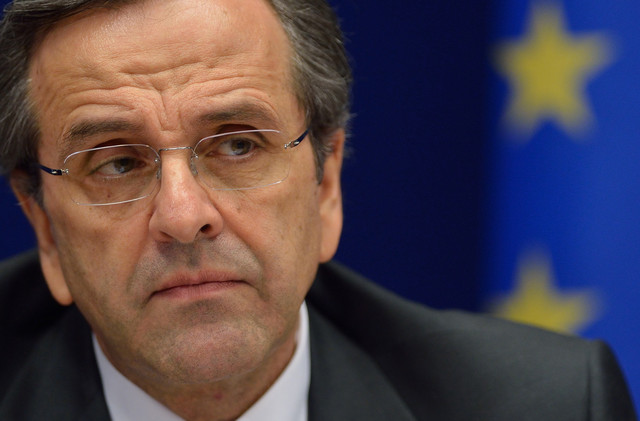Greek Prime Minister, Mr. Antonis Samaras, backed by several of his ministers, reiterated his coalition government’s position on the issue of industrial energy cost reduction, offering no new developments to representatives of the Hellenic Association of Industrialists (SEV) at a meeting in Athens yesterday.
SEV officials were told by Mr. Samaras that a measure promising industrial plants compensation for the increased cost of emission allowances had already been submitted to Parliament for ratification, which could take place today. It is estimated that this measure will collectively save industrial firms 20 million euro on an annual basis, or 140 million euro until 2020.
The Greek Prime Minister told the industrial representatives that the national economy’s gain from a deal reached with Gazprom for a reduction of natural gas prices was valued at 87 million euro. Mr. Samaras also noted that a stalled plan concerning the partial return of Public Gas Company (DEPA) profits to consumers could take effect in the near future.
The same applied for another measure intended to offer lower rates to industrial energy consumers in exchange for their willingness to exit and enter the power system as required by demands on the supply network. The Prime Minister told the SEV officials that he was hopeful of developments on this measure by October.
Mr. Samaras also noted that 80 industrial firms using medium-voltage connections had signed agreements with PPC, the Public Power Corporation, for reduced rates offering a 15% discount. The Prime Minister added that four industrial plants running on high-voltage connections had also signed new deals with PPC, while a further four were also expected to sign imminently.
From their vantage point, SEV officials, however, claimed that the government had not stuck to its word on the majority of various cost-cutting measures announced last February, whose value had been estimated at 150 million euro.
During the meeting, SEV officials reiterated their appeal for a reduction to industrial-sector energy costs, and called for a lower Special Consumption Tax (EFK) on electricity and natural gas bills for industrial consumers. Mr. Samaras and his government officials remained vague on this demand.
SEV officials reminded Mr. Samaras and his team that energy-related taxation levels in other national economies of similar proportions – they cited Portugal as an example – were limited to 20% of levels reached in Greece. Such policies were offering major comparative advantages to the export industries of competitor nations at a time when Greek firms were sinking into even deeper trouble, the SEV officials argued.
Though the government officials, at the meeting, reportedly expressed their understanding on the pressing challenges faced by Greek industry, they did not offer any specific views on future energy cost-cutting policies.
Finance Minister Gikas Hardouvelis, however, did note that Greece’s GDP contraction of 25% over the past few years of deep recession had overwhelmed the country’s industrial sector.





